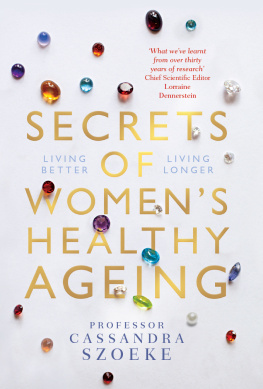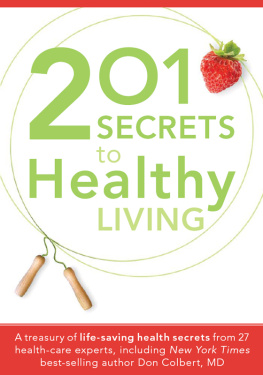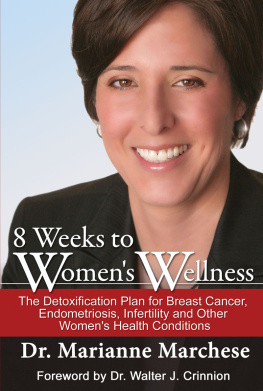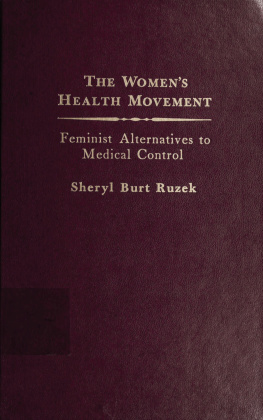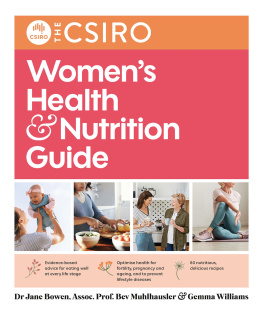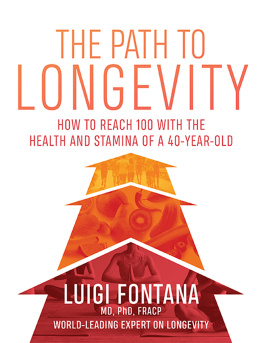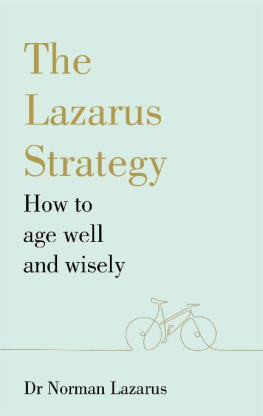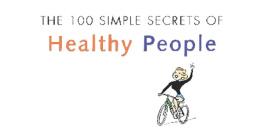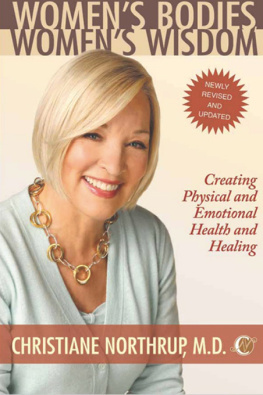Table of Contents
Professor Cassandra Szoeke is the principal investigator of the Womens Healthy Ageing Project, the longest ongoing study of womens health in Australia. She is a general physician, consultant neurologist and multi-award-winning clinical researcher. She has published more than two hundred articles in medical journals and has held many significant academic positions in universities and institutions locally and internationally.
She has worked in both the public and private health systems in Australia, including being a board director appointed by the state health minister. She has worked for government organisationsincluding the Department of Health and the Commonwealth Science Industry and Research Organisation, where she was theme leader and then clinical consultant in the Preventive Health Flagship. She is currently director of the Healthy Ageing Program in the Centre for Medical Research and Professor of Medicine in the Faculty of Medicine, Dentistry and Health Sciences at the University of Melbourne.
Professor Szoeke is a fellow of the Royal Australasian College of Physicians and associate fellow of the Australasian Institute of Digital Health. She sits on the council of the Australian MedicalAssociation, is director of the AsiaPacific node of the International Womens Brain Project and is appointed by the Department of Health to sit on the Victorian Medical Panel. Recognised internationally for her contributions to healthy ageing research, she holds the Australian clinical representative role in the worldwideAlzheimers Disease Initiative and the Global Burden of Disease Study, and is chief medical officer for the Australian Healthy Ageing Organisation.

MELBOURNE UNIVERSITY PRESS
An imprint of Melbourne University Publishing Limited
Level 1,715 Swanston Street, Carlton,Victoria 3053, Australia
mup-contact@unimelb.edu.au
www.mup.com.au

First published 2021
Reprinted 2021
Text Cassandra Szoeke, 2021
Illustrations Lilian Darmono, 2021
Design and typography Melbourne University Publishing Limited, 2021
This book is copyright. Apart from any use permitted under the Copyright Act 1968 and subsequent amendments, no part may be reproduced, stored in a retrieval system or transmitted by any means or process whatsoever without the prior written permission of the publishers.
Every attempt has been made to locate the copyright holders for material quoted in this book. Any person or organisation that may have been overlooked or misattributed may contact the publisher.
Cover design by Sandy Cull
Cover image by Stocksy and Alamy
Typeset by Megan Ellis
Printed in Australia by McPhersons Printing Group

9780522877236 (paperback)
9780522877243 (ebook)
For my daughters, and all daughters
CONTENTS
PROLOGUE
BEYOND BIKINI HEALTH
The women at the heart of this story come from all walks of life. When we first met them, many were marriedsome happily, some not. Some were dealing with the tumult of divorce. Some were single, some shared their lives with other women. Some, not all, were in paid work. Those caring for children or ailing parents could have told you their work was never-ending. Some lived in suburban homes with sports timetables stuck to the fridge; in apartments with freezers stocked with Lean Cuisine; or on new estates at the citys fringes, where the mortgages were as big as the houses. What they had in common was this: they were all at home when the phone call came, and when it counted, they all said yes.
It was 1990, a year of big ballads and bigger social changes. Sinad OConnor was dominating charts worldwide with her hit Nothing Compares 2 U. Nelson Mandela was freshly released from prison and the Berlin Wall was being dismantled. In Australia, employees of the Roy Morgan market research company were hitting the phones, randomly dialling hundreds of households across the countrys second-biggest city, Melbourne. Their mission: to find women aged 45 to 55 willing to answer detailed and intimate questions to provide University of Melbourne researchers with a wide-frame snapshot of womens health in this phase of life.
Of 2000 women who took the call and agreed to be surveyed, 779 were still having their periods and more than 400 would go on to say yes to a second, far more demanding request. What these women had in common was an exceptional commitment to furthering medical knowledge of womens health in midlife and beyond. They embarked on what was to be a five-year program, starting in 1991, to take part in face-to-face interviews about everything from the food they ate to their sex lives, and to travel to the university every year for a series of specialised medical tests, physical and psychological. Five years grew into three decades. Some women moved away, could no longer take part, or, sadly, succumbed to illness. Yet even today hundreds have continued to volunteer their time, blood, bodies and innermost thoughts for what has become the groundbreaking Womens Healthy Ageing Project, the study that forms the foundation for this book.
In my working life as a researcher, I have learnt that when we talk about womens health, people often expect to hear about reproductive health or bikini healththat is, matters relating only to areas of the body covered by a bikini. This study, the one to which so many women have given so many years, has been run by doctors whose primary interest is the brain. That is why this book is not about so-called bikini health but more about burkini healthwomens overall health and wellbeing from midlife onwards.
The three decades of research on which this book is based have been led from the head down, from the bodys central control-and-command centrethe brain. The inaugural principal investigator and current chair of the projects Science Advisory Board, Professor Lorraine Dennerstein AO, is a psychiatrist and was awarded the gold medal for outstanding contributions to sexology and sexual health by the World Association for Sexology in Montreal, Canada in 2005. I am a neurologist. Together with the study participants, research teams and a host of international researchers and collaborators, we have explored the secrets to womens healthy ageing.

In this book we are interested in womens overall health, not just reproductive health.
The project has become a landmark study, collecting information from the decades of life that lead to later-life diseases, whilst also including the details about menopausal transition. We now understand that the three decades before the age of 70 (at least from age 45 onwards) are the ones during which chronic diseases slowly develop, well before they lead to any changes significant enough to lead to a diagnosis. For example, we were involved in the 2013 reportin the medical journal The Lancet that showed that the hallmark for dementiadeposits of amyloid, a type of protein, in the brainoccurs three decades before first diagnosis. We also know it takes several decades for changes to blood vessels to result in heart attacksor strokes. The chronic diseases of ageing get their name from the fact they take many decades to evolve.

